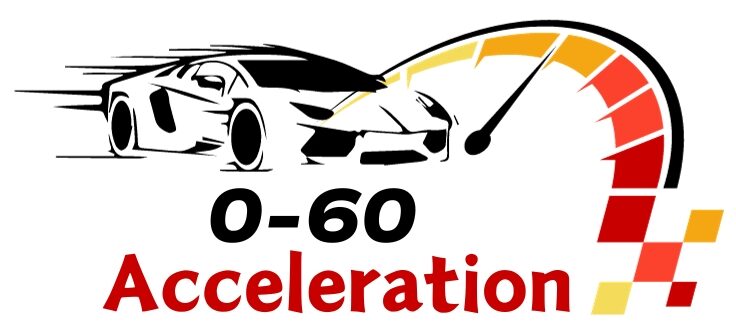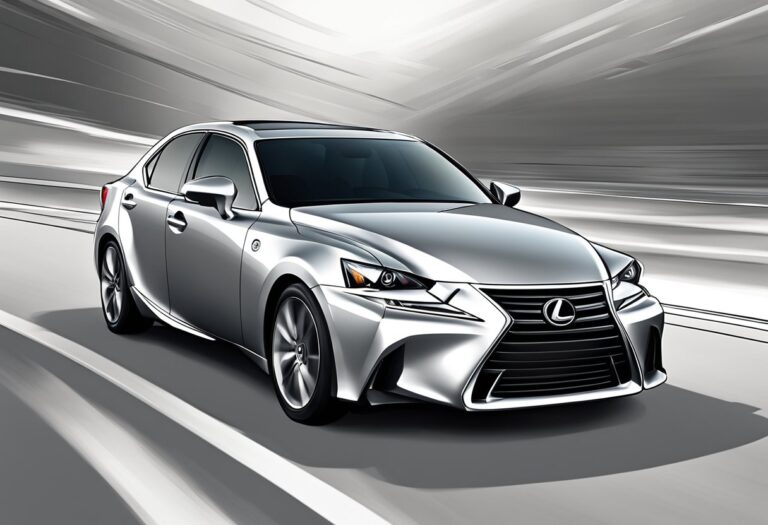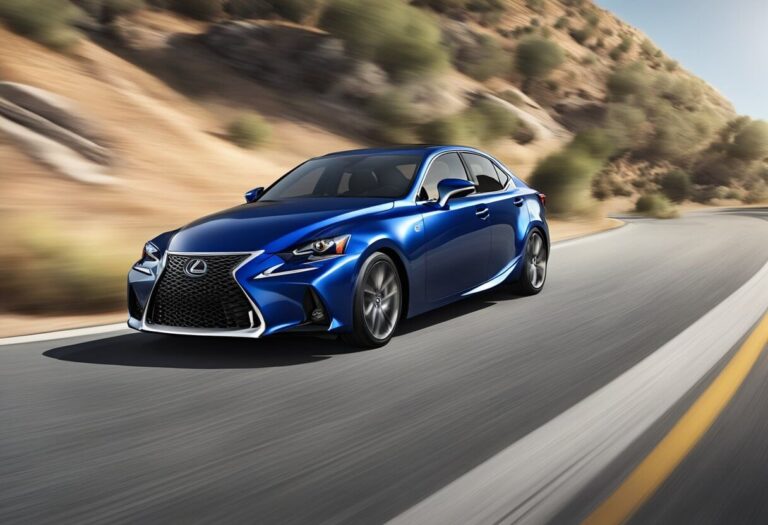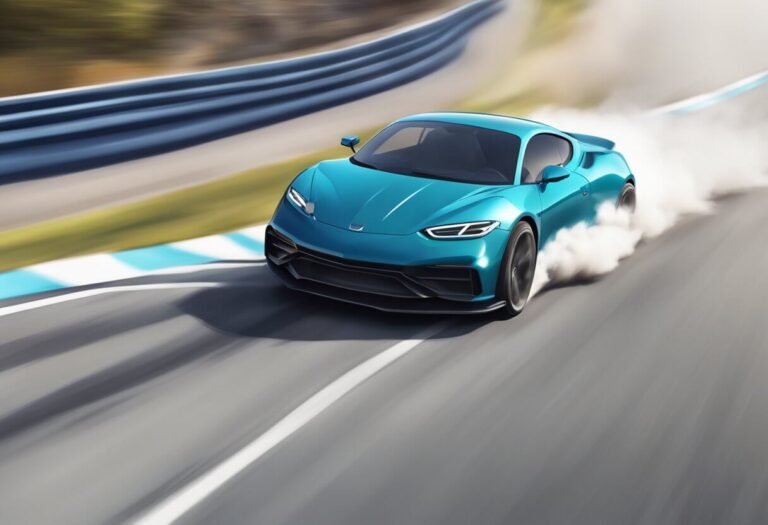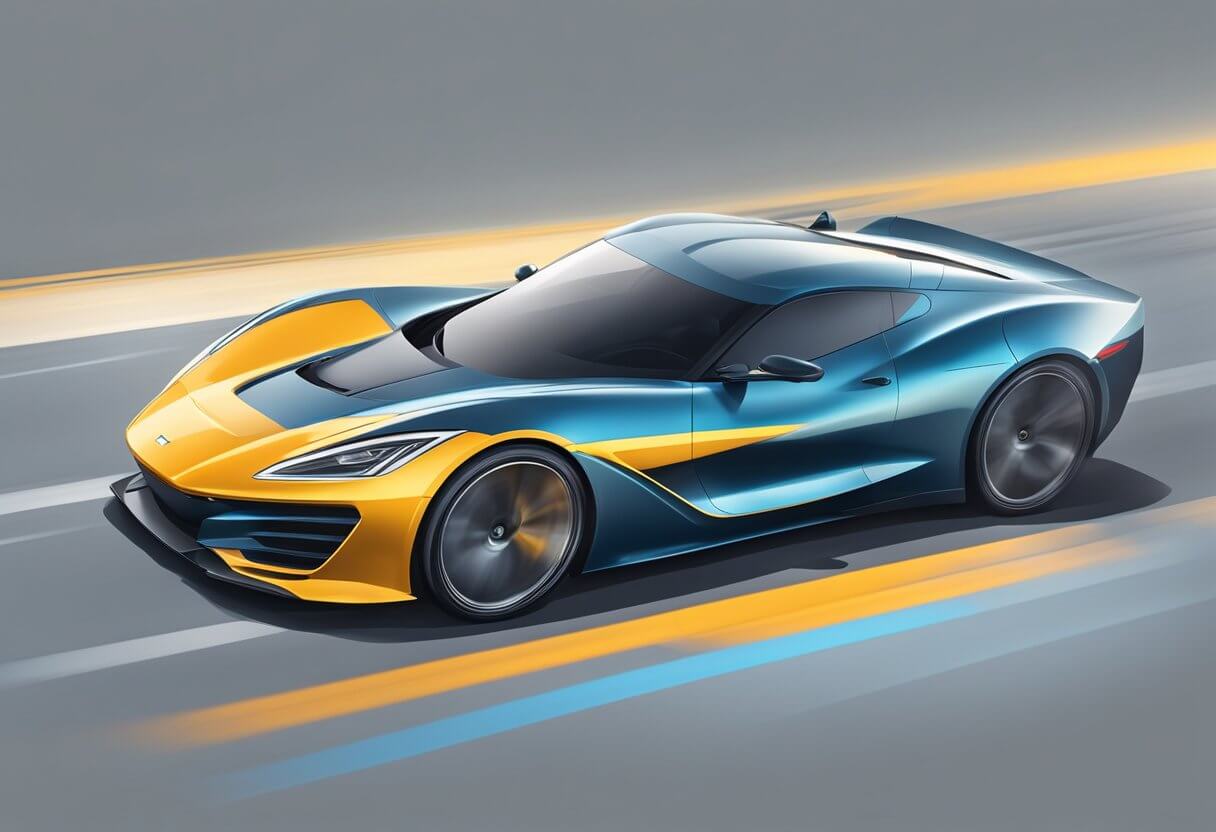
Speed. Power. Adrenaline. For auto enthusiasts, few things quicken the pulse like hearing the roar of a finely tuned engine or feeling the g-force of rapid acceleration. We love fast cars, but one question is always top of mind: What car has the fastest 0-60 time? The short answer is: The Bugatti Chiron Super Sport 300+ currently holds the record with a 0-60 time of just 2.4 seconds.
In this post, we’ll dive into the details around 0-60 times and the factors that influence them. We’ll look at current record holders across various car classes, from exotic supercars to more attainable performance models. We’ll also explore how technology, from traction control to active aerodynamics, has pushed acceleration capabilities forward over the decades.
And we’ll consider legal and safety issues related to real world speed. If you love fast cars as much as we do, read on to satisfy your need for speed!
Current Record Holders
Production Cars
When it comes to production cars, the Bugatti Chiron Super Sport 300+ currently holds the title for the fastest 0-60 time. According to Car and Driver, the Chiron Super Sport 300+ was able to reach 60 mph in just 2.4 seconds during their testing.
Other production cars that are known for their quick acceleration include the Tesla Model S Plaid, which can reportedly reach 60 mph in under 2 seconds, and the Porsche 911 Turbo S, which has a 0-60 time of 2.2 seconds.
Electric Cars
Electric cars have been making waves in the automotive industry, and they’re also making their mark when it comes to acceleration. The Rimac C_Two is currently the fastest electric car in terms of 0-60 times, with an impressive time of 1.85 seconds. This car is powered by four electric motors and has a top speed of 258 mph.
Other electric cars with notable acceleration times include the Tesla Model S Plaid, which we mentioned earlier, and the Aspark Owl, which has a 0-60 time of 1.72 seconds.

Modified Cars
Modified cars are often able to achieve impressive acceleration times, thanks to upgrades to their engines and other components. One of the fastest modified cars in terms of 0-60 times is the Hennessey Venom F5, which has a reported time of 2.6 seconds. This car is powered by a twin-turbo V8 engine that produces over 1,800 horsepower.
Other modified cars that are known for their acceleration times include the McLaren 720S, which has a 0-60 time of 2.8 seconds, and the Lamborghini Aventador SVJ, which can reach 60 mph in just 2.8 seconds.
Overall, there are many cars that are known for their quick acceleration times, and the record holders are constantly changing as new models are released and technology improves.
Factors Influencing 0-60 Times

When it comes to measuring a car’s acceleration, the 0-60 mph time is one of the most commonly used metrics. While there are many factors that can influence a car’s 0-60 time, some of the most important ones include:
Engine Power
Engine power is one of the most significant factors that can influence a car’s 0-60 time. The more power an engine produces, the faster a car can accelerate. This is because more power allows the car to overcome the forces of friction and air resistance more quickly. Cars with larger engines or turbocharged engines tend to have more power and can therefore accelerate faster.
Vehicle Weight
The weight of a car also plays a significant role in its 0-60 time. Generally, lighter cars are able to accelerate more quickly than heavier ones. This is because a lighter car has less mass to move, so it requires less force to achieve the same acceleration. Cars with lightweight materials such as carbon fiber or aluminum tend to have faster 0-60 times than those made from heavier materials like steel.
Traction
Traction is another critical factor that can influence a car’s 0-60 time. A car with poor traction will struggle to put its power to the ground effectively, resulting in slower acceleration times. Cars with advanced traction control systems or all-wheel drive tend to have better traction and can therefore achieve faster 0-60 times.
Transmission
The type of transmission a car has can also impact its 0-60 time. Cars with manual transmissions tend to be faster than those with automatic transmissions, as they allow the driver to shift gears more quickly and precisely. However, some modern automatic transmissions with dual-clutch systems can shift gears faster than a human can, resulting in faster acceleration times.
Technological Advancements
Launch Control Systems
Launch control systems are advanced technologies that allow drivers to achieve the fastest possible acceleration times. These systems use various sensors to monitor and control engine power, transmission, and traction to optimize the launch.
Modern launch control systems are available in many high-performance cars, including the Porsche 911 Turbo S, Lamborghini Huracan Evo, and Nissan GT-R Nismo. These systems typically require the driver to activate them by pressing a button or following a specific sequence of actions.
Electric Powertrains
Electric powertrains are becoming increasingly popular in high-performance cars due to their instant torque delivery. Unlike traditional internal combustion engines, electric motors can produce maximum torque from a standstill, resulting in lightning-fast acceleration times.
Some of the fastest accelerating production cars are electric, including the Tesla Model S Plaid, Rimac Nevera, and Porsche Taycan Turbo S. These cars can achieve 0-60 mph times in under 2 seconds, thanks to their powerful electric powertrains.
Active Aerodynamics
Active aerodynamics are advanced technologies that allow cars to adjust their aerodynamic properties in real-time to optimize performance. These systems use various sensors to monitor the car’s speed, yaw, and other factors to adjust the angle of the wings, flaps, and other aerodynamic components.
Cars like the Bugatti Chiron Super Sport 300+, Koenigsegg Jesko, and McLaren Senna all use active aerodynamics to achieve their impressive performance figures. These systems allow these cars to achieve high speeds while maintaining stability and control.
Historical Progression
Decade-By-Decade Evolution
The evolution of car technology has led to significant improvements in acceleration times over the years. Starting from the 1950s, cars have been getting faster and faster, with the 0-60 mph time becoming a benchmark for measuring a car’s performance.
In the 1950s, most cars took around 20 seconds to reach 60 mph. However, by the 1960s, muscle cars like the Chevrolet Camaro and Ford Mustang were able to achieve this feat in under 10 seconds. The 1970s saw the introduction of turbocharged engines, which helped cars like the Porsche 911 Turbo and BMW M1 achieve even faster 0-60 mph times.
The 1980s saw the introduction of electronic fuel injection, which allowed for more precise control over the engine’s fuel delivery. This technology, combined with advances in aerodynamics, helped cars like the Ferrari Testarossa and Lamborghini Countach achieve 0-60 mph times in the 4-second range.
The 1990s saw the introduction of all-wheel drive systems, which helped improve traction and acceleration. Cars like the Mitsubishi 3000GT VR-4 and Nissan Skyline GT-R were able to achieve 0-60 mph times in under 5 seconds.
The 2000s saw the introduction of launch control systems, which allowed for more consistent and faster starts. Cars like the Porsche 911 Turbo and Nissan GT-R were able to achieve 0-60 mph times in under 4 seconds.
Notable Milestones
Over the years, there have been several notable milestones in the evolution of the 0-60 mph time. In 1986, the Porsche 959 became the first production car to achieve a 0-60 mph time of under 4 seconds. In 1991, the Bugatti EB110 became the first car to achieve a 0-60 mph time of under 3 seconds. In 2005, the Bugatti Veyron became the first car to achieve a 0-60 mph time of under 2.5 seconds.
Today, there are several cars that can achieve 0-60 mph times in under 2.5 seconds, including the Tesla Model S Plaid, Rimac C_Two, and Bugatti Chiron Super Sport 300+. As car technology continues to evolve, it’s likely that we’ll see even faster 0-60 mph times in the future.
Future Trends
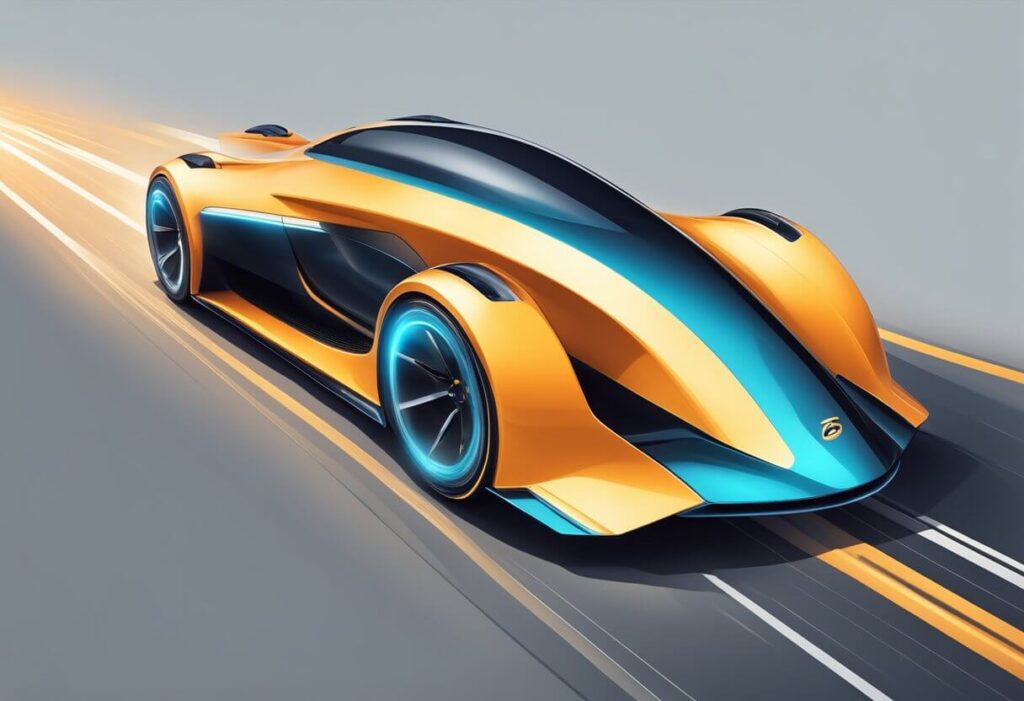
Hybrid Technologies
Hybrid technology has been around for a while now, but it has recently started to gain more traction in the automotive industry. With the development of new battery technology and more efficient electric motors, hybrid cars are becoming increasingly popular. These cars are able to provide the power and performance of a traditional gasoline engine while also offering the fuel efficiency and eco-friendliness of an electric car.
Autonomous Driving Systems
Autonomous driving systems are still in their infancy, but they have the potential to revolutionize the way we drive. With the development of advanced sensors and artificial intelligence, cars are becoming more and more capable of driving themselves. This technology has the potential to greatly reduce the number of accidents on the road and make driving more efficient and convenient.
Alternative Fuels
With the increasing concern over climate change and the need to reduce our reliance on fossil fuels, alternative fuels are becoming more and more important. Cars that run on hydrogen fuel cells, for example, emit only water vapor and have the potential to greatly reduce our carbon footprint. Electric cars are also becoming more popular and are seen as a viable alternative to traditional gasoline-powered cars.
Testing and Verification
Standardized Testing Procedures
To determine the fastest car from 0-60 mph, standardized testing procedures are crucial. The Society of Automotive Engineers (SAE) has established a set of guidelines for testing acceleration, which includes the 0-60 mph time. The SAE J1321 standard specifies that the test vehicle must start from a complete stop, and the time it takes to reach 60 mph is recorded. The test must be conducted on a level, dry, and paved surface, with a driver and a passenger on board. The test vehicle must also be in its stock configuration, with no modifications made to the engine, transmission, or other components.
Independent Testing Agencies
Several independent testing agencies conduct 0-60 mph tests on various cars to verify their performance claims. One such agency is MotorTrend, which has been conducting acceleration tests for over 70 years. MotorTrend uses a similar testing procedure to SAE, but with a few modifications to account for real-world driving conditions. The agency also conducts multiple runs to ensure accuracy and consistency.
Another independent testing agency is Car and Driver, which has been testing cars since 1950s. Car and Driver uses a testing procedure that is similar to MotorTrend’s, with a few differences in the testing environment and methodology. The agency also conducts multiple runs and averages the results to account for variations in driver skill and track conditions.
When it comes to verifying 0-60 times, it’s important to note that independent testing agencies like MotorTrend and Car and Driver provide valuable standardized data, but their results may not perfectly match manufacturers’ claims. This is because testing conditions and methodologies differ slightly.
To get the most accurate picture when determining the fastest accelerating production car, it’s essential to analyze results from multiple credible sources and understand how their procedures vary. Looking at the full range of rigorously gathered data allows enthusiasts to draw well-informed conclusions about the real-world 0-60 capabilities of today’s quickest vehicles.
Legal and Safety Considerations
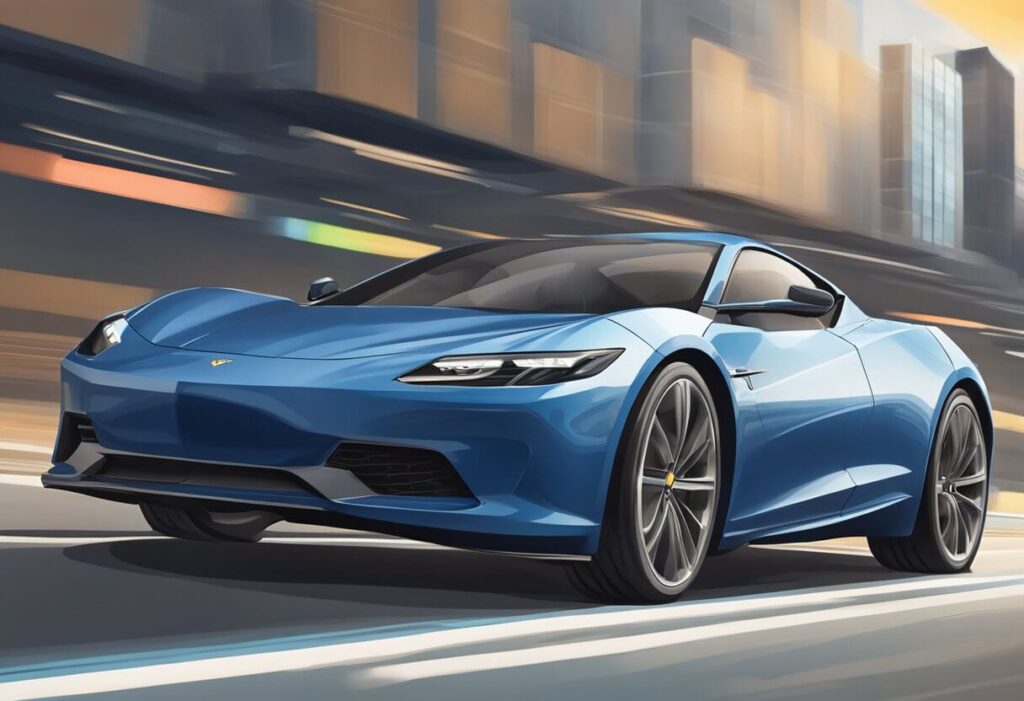
Street-Legal Requirements
When it comes to determining the fastest car from 0-60 mph, it’s important to consider street-legal requirements. In order for a car to be driven on public roads, it must meet certain safety and emissions standards. Additionally, it must be registered and insured, and the driver must have a valid license.
One important factor to consider is the legality of modifications. While aftermarket upgrades can improve a car’s performance, they may also violate street-legal requirements. It’s important for drivers to research and understand the laws in their area before making any modifications to their vehicle.
Driver Safety
Another important consideration when it comes to determining the fastest car from 0-60 mph is driver safety. While high-performance cars can be thrilling to drive, they also require a skilled driver to handle them safely.
It’s important for drivers to understand the limits of their vehicle and their own driving abilities. They should also be aware of the risks associated with high-speed driving and take appropriate precautions, such as wearing a seatbelt and obeying traffic laws.
In addition, some high-performance cars may come equipped with advanced safety features, such as traction control and stability control, which can help prevent accidents. It’s important for drivers to understand how these features work and use them appropriately to maximize their safety on the road.
